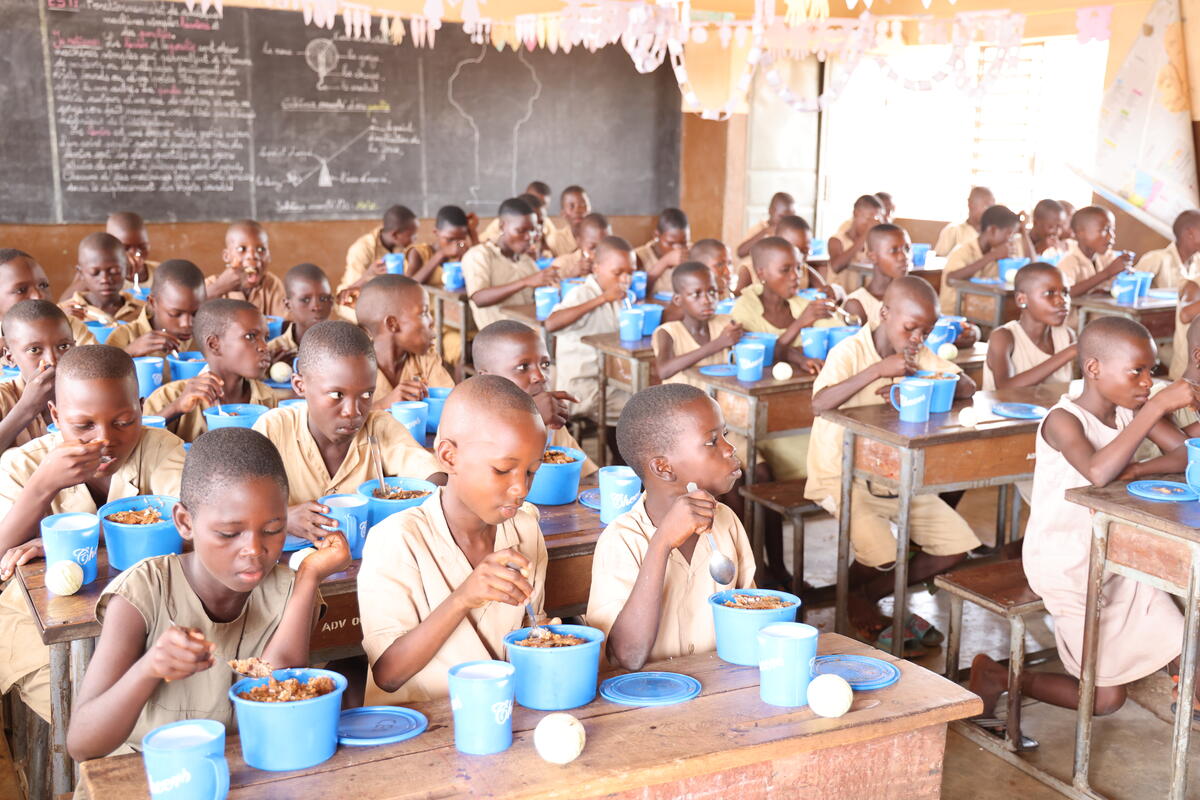
A workshop on food and nutrition security in the context of school feeding programmes took place online on June 4 and 5, involving representatives from the National Education Development Fund (FNDE), the World Food Programme (WFP) office in Benin and the WFP Centre of Excellence against Hunger in Brazil. During the meeting, the participants discussed food safety, food quality control, menu preparation and the good practices used and challenges in implementing school feeding programmes.
The meeting proposes an exchange of knowledge between Brazil and Benin and was organised as part of a cooperation initiative being developed through a partnership involving the French Ministry of Foreign Affairs, the WFP Centre of Excellence against Hunger in Brazil and the WFP Office in Benin, including strategies aimed at strengthening Benin’s National School Feeding and Nutrition Programme (PNASI). The initiative aims to support the integration of the school feeding programme with the production of local family farmers, improve the nutritional quality and sustainability of the PNASI by integrating locally sourced products into the school menu.
The management of the school feeding programme in Benin used to be carried out by the WFP country office in Benin, but it was transferred to the government at the end of 2024 and today benefits around 1.3 million schoolchildren in more than 5,000 schools.
Ella Regina, WFP’s school feeding officer in Benin, says that school meals in Benin are prepared in schools by women volunteers and served and distributed in canteens and classrooms. For her, involving local farmers in the food supply is a solution that values the local economy and brings healthier, fresher food to the children.
Among the main themes of the workshops were nutritional education, food safety, quality control and the importance of diversified diets using fresh food, using the good practices implemented in Brazil as a reference.
The workshops had the expertise of the FNDE’s technical staff, who presented how the hygiene and quality control of the meals served in the Brazilian National School Feeding Programme (PNAE) is guaranteed. Among the measures presented to guarantee safe food for more than 40 million students are: implementing good hygiene practices, quality control in the production chain and monitoring production and storage.
According to the United Nations (2023), at least 600,000 cases of illness caused by unsafe food handling are recorded every year. The poorest and most vulnerable populations are generally the most affected, especially women and children.
In addition, tools were presented such as the PNAE Plan, a solution developed in Excel used to help nutritionists draw up menus in accordance with the PNAE’s rules and guidelines, and various guides produced by the agency on topics related to the implementation of the programme.
During the round of questions and answers, some of the queries from WFP representatives in Benin about the Brazilian experience involved issues such as the funding of the programme and its gratuity, the management of canteens and menus, staff pay and data collection on the PNAE. Based on the topics presented in the workshops, they will jointly evaluate themes to be explored in greater depth in future technical assistance and training programmes.
When answering some of the questions posed, Daniel Bandoni, COSAN’s Food and Nutrition Security coordinator, stressed that the PNAE is free of charge and that the programme is concerned with offering fresh, healthy and nutritious food, avoiding serving sugary drinks and ultra-processed products to students.




